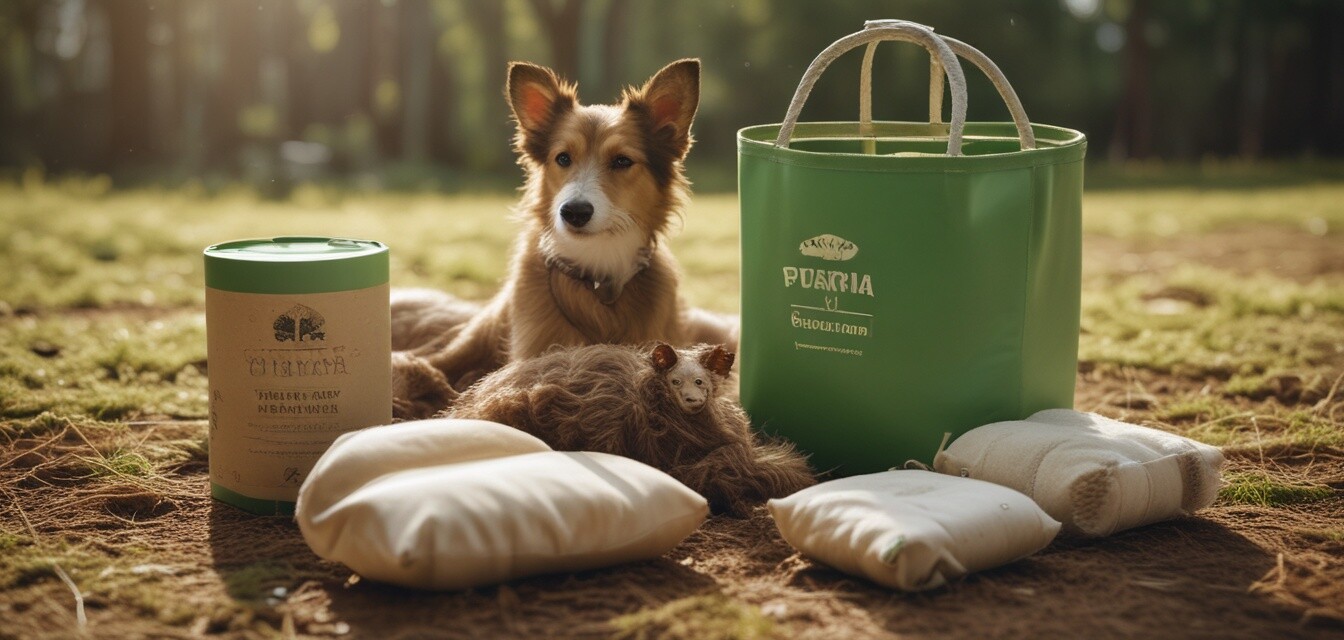
Eco-Friendly Options: A Shift in Consumer Habits in Pet Care
- Growing demand for eco-friendly products among pet owners.
- Brands are adapting their strategies to incorporate sustainable practices.
- Eco-friendly options include biodegradable waste solutions, natural grooming products, and sustainable toys.
- Consumers are more educated about the environmental impact of their purchases.
The pet care industry is undergoing a significant transformation as consumers increasingly prioritize eco-friendly products. This shift is not only reshaping the market landscape but also influencing brands and businesses to adopt sustainable practices. In this article, we explore recent trends in consumer behavior towards eco-friendly options in pet care and discuss the implications for brands.
The Rise of Eco-Conscious Pet Owners
In recent years, there has been a notable increase in the number of pet owners who identify as eco-conscious. These consumers are more aware of their choices and their impact on the planet. This shift has given rise to a demand for products that are not only safe for pets but also sustainable for the environment.
Key Factors Influencing Eco-Friendly Purchases
| Factors | Description |
|---|---|
| Environmental Awareness | More consumers recognize the impact of plastic waste and pollution on the planet. |
| Health Consciousness | Consumers prefer natural and organic products that are safer for their pets. |
| Brand Transparency | Customers are looking for brands that disclose their sourcing and manufacturing processes. |
| Community Influence | Being part of a community that values sustainability can drive purchasing decisions. |
Product Categories Trending in Eco-Friendly Pet Care
As the market evolves, several product categories are gaining traction among eco-conscious consumers:
- Biodegradable Waste Solutions: Products designed to minimize environmental impact.
- Natural Grooming Products: Chemical-free alternatives that prioritize pet health and sustainability.
- Sustainable Toys: Eco-friendly toys made from recycled or organic materials.
- Eco-Friendly Bedding: Bedding options made from sustainable, non-toxic materials.
- Eco-Friendly Pet Food: Pet food sourced from sustainable ingredients with minimal carbon footprints.
Brands Leading the Eco-Friendly Movement
Many brands have emerged as leaders in the eco-friendly pet supply market, setting new standards and encouraging others to follow suit. These companies focus on sustainable practices throughout their supply chains, from sourcing to packaging.
The Role of Education in Consumer Choices
Consumer education plays a pivotal role in the shift towards eco-friendly products in pet care. People need to understand the implications of their purchasing decisions on the environment. Educational initiatives, whether through social media campaigns or in-store promotions, can significantly impact consumer awareness and behavior.
How Brands Can Educate Consumers
- Host workshops and events that showcase eco-friendly practices.
- Utilize social media platforms to share information about sustainable products.
- Provide detailed information on product labels regarding sourcing and environmental impact.
- Engage with customers through surveys to gather insights and share findings.
Challenges for Brands in the Eco-Friendly Market
While the shift towards eco-friendly products presents many opportunities, brands also face challenges:
| Challenges | Potential Solutions |
|---|---|
| Higher Production Costs | Invest in efficient manufacturing processes and innovative materials. |
| Consumer Skepticism | Build trust through transparency in sourcing and production. |
| Market Competition | Differentiate by offering unique eco-friendly features and benefits. |
Future Trends in Eco-Friendly Pet Care
As consumer habits continue to evolve, we can expect to see several key trends emerge in eco-friendly pet care:
- Increased use of renewable materials in pet products.
- More emphasis on certified organic ingredients in pet food.
- Advancements in technology to create more sustainable packaging solutions.
- Collaboration between brands and NGOs to promote sustainable initiatives.
Conclusion
As consumer habits shift towards eco-friendly options, brands and businesses in the pet care industry must adapt to meet these demands. Embracing sustainability is not only beneficial for the environment but also presents a competitive advantage in a rapidly changing market. By prioritizing eco-friendly practices, companies can foster brand loyalty among informed consumers who care about the planet.
Pros
- Increased brand loyalty among eco-conscious consumers.
- Positive impact on the environment.
- Potential for market expansion in the eco-friendly niche.
Cons
- Higher production costs may affect pricing.
- Need for education to build consumer trust.
- Increased competition in the sustainable market.